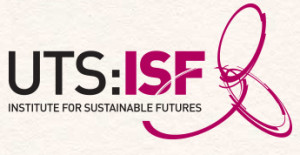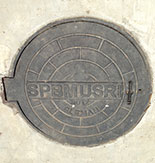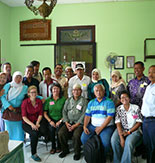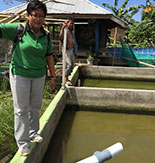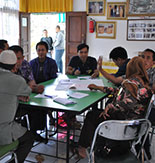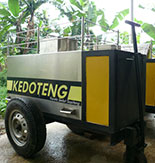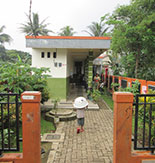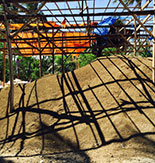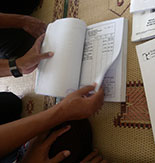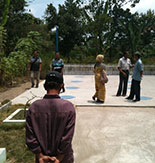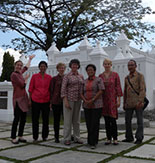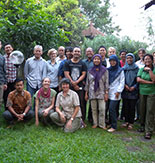Community Sanitation Governance
Effluent management in dense, low-income urban areas in Indonesia is challenging. Local scale sanitation systems (serving communities of around 50 – 200 households) offer an affordable way to manage the public health and environmental hazards of untreated wastewater in urban areas. However these systems need effective governance in order to operate in the long-term. Reviews of these local scale systems have found that effective governance is difficult to achieve and the service does not always last as long as planned.
‘Community Sanitation Governance’ is a 3-year research project investigating effective governance for successful long-term operation of community scale wastewater systems in Indonesia. For this project, governance means the financial, stakeholder, organizational, regulatory, and technical support necessary for successful, long-term service delivery.
The research is led by the Institute for Sustainable Futures (ISF) at University of Technology Sydney (UTS), and supported by the Australian Development Research Awards Scheme (ADRAS) to run from 2014-2016. The research is undertaken in partnership with the Government of Indonesia Ministry of National Development Planning (BAPPENAS), in collaboration with BORDA Germany, the Overseas Development Institute (ODI), AKSANSI (Association for Community Based Sanitation Organisations in Indonesia) and the Center for Policy Regulation and Governance at Universitas Ibn Khaldun Bogor (UIKB).
What will this project do? The project will support safe and on-going service of human excreta and other domestic wastewater. For this project, service means long-term collection, treatment, storage, reuse and/or disposal of wastewater.
This project seeks to support those who are responsible for the 8,000 local scale systems in Indonesia in place now and planned for the next five years. It will do this by:
- Investigating and clarifying the legal position and normal practices around asset ownership and transfer, and explore what that means for who can and does contribute to operation and maintenance
- Investigating what is currently known about the performance of these systems by assessing and mining existing data
- Exploring how the costs of centralized air limbah infrastructure and service provision compare with community scale systems
- Investigating and proposing, with our partners, a menu of different long-term structures and institutional arrangements that could deliver effective management for long term services
What will be the outputs and outcomes of this project? Based on the ideas we generate with government agencies, local NGOs, community-based sanitation organisations and private enterprises, the project team will produce guidance material for those who are responsible for community scale air limbah systems. The guidance material will provide examples of successful systems and paths for transitioning to different management partnership models.
